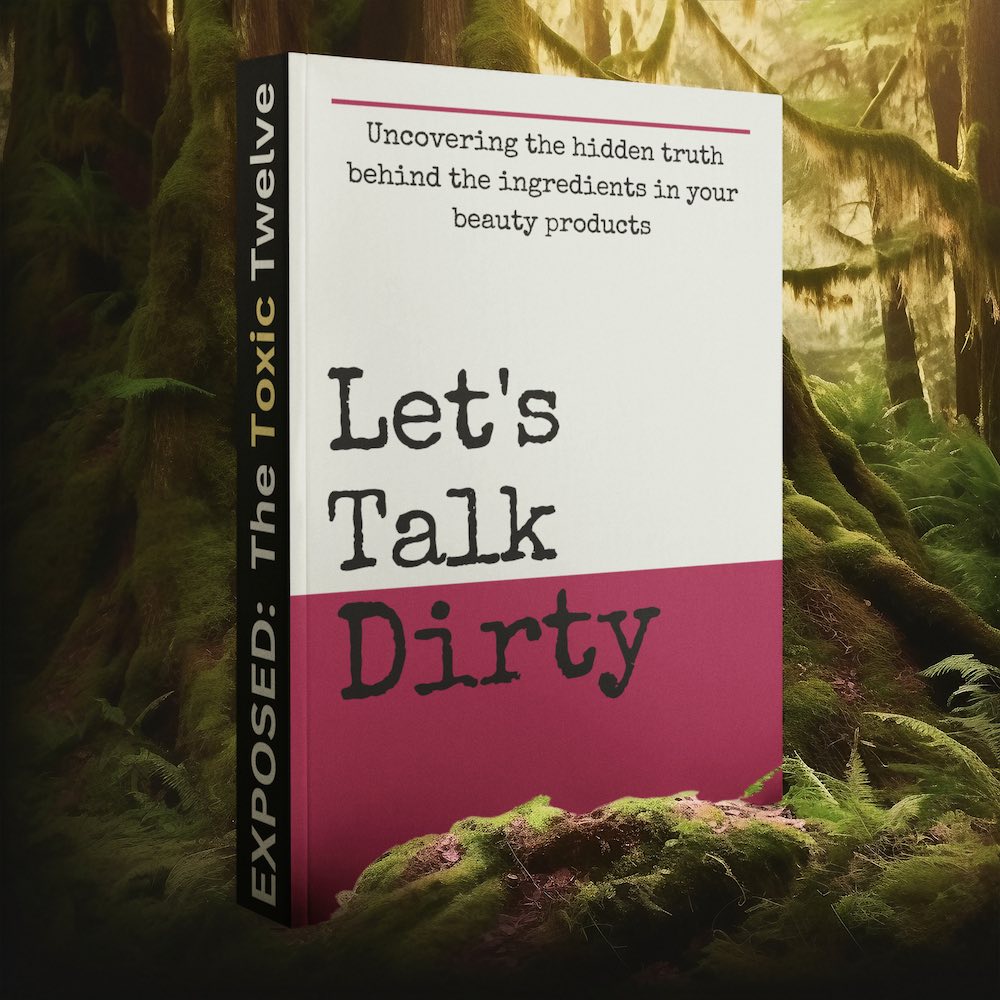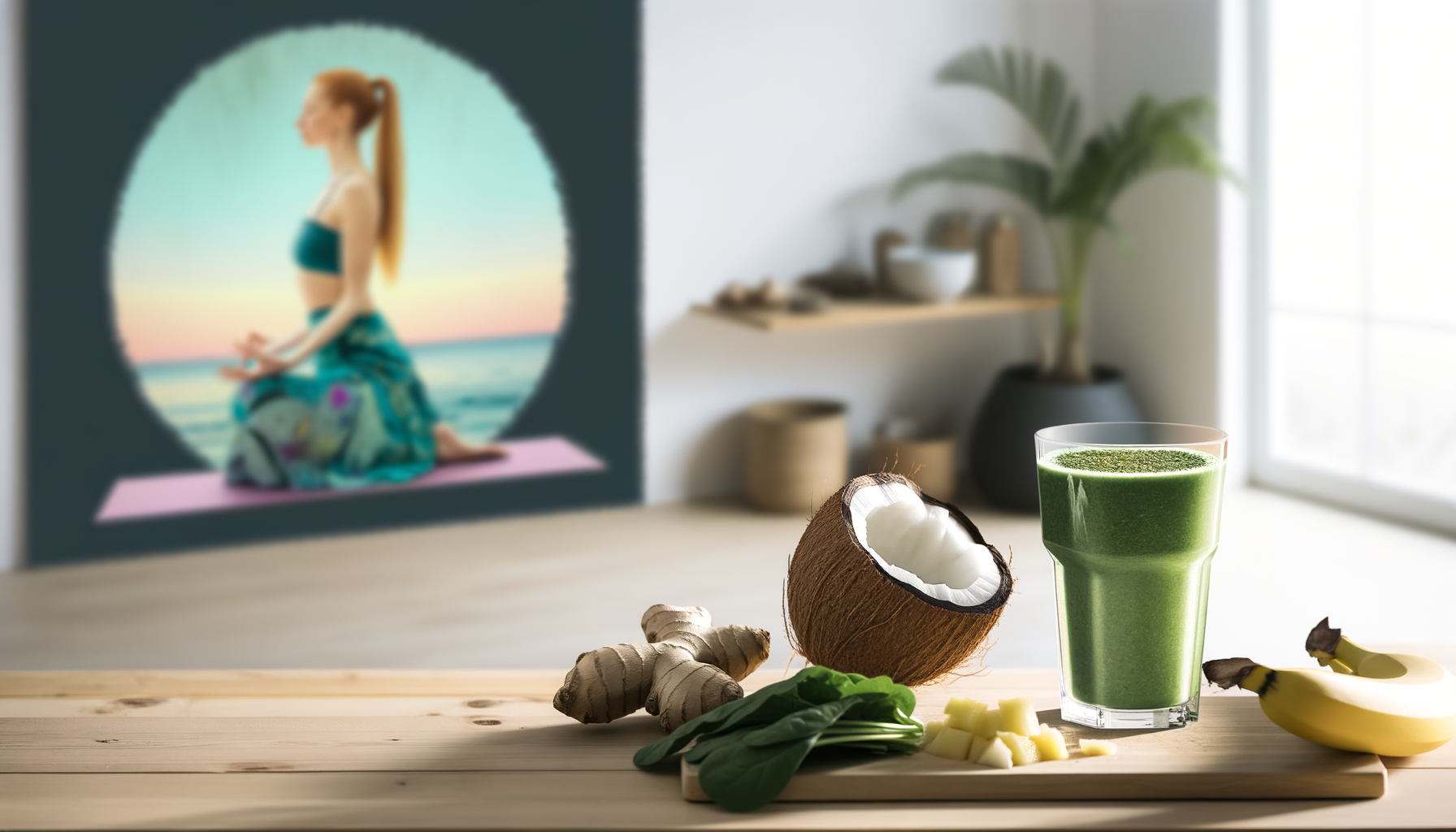Introduction to Holiday Detoxing
The Importance of Detoxing During the Holidays
The holiday season is synonymous with joy, celebration, and often, indulgence. With an abundance of rich foods, sweet treats, and festive drinks, our bodies can accumulate toxins that may affect our health and energy levels. Detoxing during the holidays is crucial as it helps in cleansing the system, eliminating toxins, and providing the body with healthy nutrition. This process is not only about rejuvenating the body but also about protecting it from potential winter diseases and maintaining vitality amidst the festivities.
Challenges of Maintaining Health During Festivities
Maintaining a healthy lifestyle during the holiday season can be challenging. The temptation to overindulge is high, and the usual routines are often disrupted by social gatherings and travel. Additionally, the emotional stress of the season can lead to comfort eating and increased consumption of alcohol, further adding to the body’s toxic load. These factors make it difficult to stay on track with health goals, necessitating a focused approach to detoxification.
Benefits of Detox for Hormone Balance and Overall Well-being
Engaging in a holiday detox can have profound benefits for hormone balance and overall well-being. Toxins can disrupt the delicate hormonal equilibrium, leading to issues such as fatigue, mood swings, and weight gain. A detox can help reset the hormonal balance, enhancing mood and energy levels. Moreover, it supports the liver, the body’s primary detox organ, in processing and eliminating toxins more efficiently. This, in turn, can lead to improved digestion, clearer skin, and a stronger immune system. By incorporating detox strategies into your holiday routine, you can enjoy the festivities while also nurturing your body’s health and resilience.

Feeling You Have a Right to Safe Beauty & Fem Care?
If so, it may be time for a change. It starts with knowledge. We have a few suggestions in our new guides.
Nutritional Strategies for Detox
Incorporating Detoxifying Foods
During the holidays, it’s easy to overindulge in rich foods that can leave you feeling sluggish and bloated. To counteract this, focus on incorporating detoxifying foods into your diet. Foods such as leafy greens, ginger, and cruciferous vegetables like broccoli and Brussels sprouts are known for their cleansing properties. These foods help support the liver, your body’s primary detoxification organ, and provide essential nutrients to aid in recovery from holiday excesses.
The Role of Antioxidants and Proteins
Antioxidants play a crucial role in protecting the body from oxidative stress and aiding in detoxification. Foods rich in antioxidants such as berries, nuts, and seeds should be a staple in your detox diet. They help neutralize harmful free radicals and support overall health. Additionally, proteins are vital for repairing and building tissues. Lean sources of protein, including fish, poultry, and plant-based options like lentils and quinoa, provide the building blocks your body needs to rejuvenate after the holiday season.
Healthy Alternatives to Alcoholic Beverages
Alcohol consumption often increases during the holidays, but it can impede your detox efforts. Opt for healthy alternatives such as herbal teas, infused water, or kombucha. These beverages can help keep you hydrated and support detoxification without the added calories and negative effects of alcohol. If you do choose to drink, consider lighter options like a spritzer made with sparkling water or a wine with a lower alcohol content.
Importance of Fiber Intake
Adequate fiber intake is essential for a successful detox. Fiber helps regulate the digestive system and can aid in the elimination of toxins through the bowels. Incorporate high-fiber foods like oats, legumes, and fruits into your diet. Not only do these foods help keep you full, but they also support a healthy gut microbiome, which is crucial for detoxification and overall health. Remember, a balanced approach to fiber intake is key; too much can be as problematic as too little.
By adopting these nutritional strategies, you can support your body’s natural detoxification processes and emerge from the holiday season feeling refreshed and revitalized.
Detox Through Physical Activity
Yoga and Detoxification
Yoga is a powerful tool for detoxification, offering a holistic approach that benefits both the mind and body. Through a combination of poses, breathing exercises, and meditation, yoga helps to stimulate the lymphatic system, which plays a key role in eliminating toxins from the body. Twisting poses are particularly effective, as they massage the internal organs, increasing blood flow and aiding in digestion. Hot yoga, performed in a heated room, further enhances the detox process through increased sweating, which helps to flush out impurities. Incorporating yoga into your holiday detox routine can lead to improved flexibility, reduced stress, and a more balanced internal environment for detoxification.
Cardiovascular Exercises for Enhancing Detox
Cardiovascular exercises are essential for a successful detox. Activities such as running, cycling, and high-intensity interval training (HIIT) elevate the heart rate, boost circulation, and promote sweating. This not only helps to burn off excess calories from holiday indulgences but also supports the body’s natural detoxification process by expelling toxins through sweat. Cardio exercises also improve lung capacity and overall endurance, contributing to a feeling of vitality and well-being. To maximize the benefits, aim for at least 30 minutes of cardiovascular activity most days of the week during your holiday detox.
Strength Training and Body Cleansing
While often overlooked in detox routines, strength training is a potent ally in the body’s cleansing efforts. Building lean muscle mass through exercises like squats, deadlifts, and lunges not only shapes and tones the body but also raises the metabolism. A higher metabolism means the body is more efficient at processing and eliminating waste products. Additionally, strength training can help to reduce the fat and mucous that the body uses to store toxins, leading to a more effective detox. Incorporate full-body compound movements to engage multiple muscle groups and enhance the detoxifying effect.
Combining these physical activities creates a comprehensive detox plan that addresses various aspects of health. By integrating yoga, cardiovascular exercises, and strength training into your holiday routine, you support your body’s natural detoxification processes, paving the way for a healthier and more energized start to the new year.
Mindfulness and Stress Reduction
Meditation Techniques for Detox
Meditation is a cornerstone of mindfulness, offering a pathway to tranquility and detoxification of the mind. During the holidays, when stress levels can soar, incorporating meditation into your routine can be particularly beneficial. Techniques such as guided imagery, where you visualize a peaceful scene, or mantra meditation, repeating a calming word or phrase, can help center your thoughts and reduce the mental clutter that often accompanies the festive season. Additionally, mindful breathing exercises—focusing on the rhythm of your inhale and exhale—can serve as a quick and effective method to restore balance and facilitate a mental detox.
The Impact of Stress on Detoxification
Stress can significantly hinder the body’s natural detoxification processes. When we are stressed, our body’s sympathetic nervous system activates the “fight or flight” response, which can disrupt digestion and slow down the detoxifying functions of the liver and kidneys. Moreover, chronic stress can lead to hormonal imbalances, affecting cortisol and adrenaline levels, which further impedes detoxification. By managing stress through mindfulness, we can support our body’s ability to detox effectively, maintaining hormonal balance and overall well-being.
Relaxation Practices to Support Detox
Relaxation practices are essential for supporting the body’s detox pathways. Techniques such as progressive muscle relaxation, where you tense and then relax different muscle groups, can alleviate physical tension and promote detoxification. Engaging in yoga or tai chi can also be beneficial, as these practices combine physical movement with breath control and meditation, enhancing both mental and physical detox. Additionally, setting aside time for leisure activities that bring joy, such as reading or listening to music, can reduce stress hormones and support the body’s natural detox processes. Lastly, adequate sleep is a powerful detox tool, as the body repairs and rejuvenates itself during rest, making it a priority to ensure quality sleep during the holiday season.
By integrating these mindfulness and stress reduction strategies into your holiday routine, you can enhance your body’s detoxification process, improve your mental clarity, and enjoy the festive season with a greater sense of calm and presence.
Menopause can be a stressful time, but managing stress is key to reducing symptoms like hot flashes and mood swings. Techniques such as deep breathing exercises, progressive muscle relaxation, and mindfulness meditation can be effective. Cognitive-behavioral therapy (CBT) has also been shown to improve psychological well-being. Engaging in hobbies, maintaining social connections, and seeking support from peers or professionals can further aid in managing stress during menopause.
The Power of Sleep in Detoxification
Understanding Sleep’s Role in Detox
Sleep is not just a passive state of rest, but a dynamic process critical for the body’s natural detoxification pathways, particularly for the brain. During sleep, the brain activates its glymphatic system, a waste clearance system that removes toxins accumulated during waking hours. This includes harmful proteins like beta-amyloid, which are associated with neurodegenerative diseases such as Alzheimer’s. The process is most efficient during deep, non-rapid eye movement (NREM) sleep, highlighting the importance of quality sleep for maintaining cognitive health and function.
Tips for Improving Sleep Quality
Improving sleep quality is essential for enhancing the body’s detox capabilities. Here are some practical tips:
- Establish a routine: Go to bed and wake up at the same time every day to regulate your body clock.
- Create a restful environment: Keep your bedroom dark, quiet, and cool. Consider using blackout curtains, earplugs, or white noise machines if necessary.
- Limit screen time: Avoid screens at least an hour before bed to reduce exposure to blue light, which can disrupt melatonin production.
- Be mindful of diet: Avoid heavy meals, caffeine, and alcohol close to bedtime, as they can interfere with sleep quality.
- Consider sleep position: Sleeping on your side, particularly the right side, may enhance the glymphatic system’s efficiency in detoxifying the brain.
- Incline your sleep: Slightly elevating your head above your feet can improve circulation and aid in detoxification processes.
The Connection Between Sleep and Hormonal Balance
Poor sleep can lead to an overactive hypothalamic-pituitary-adrenal (HPA) axis, the body’s central stress response system. This can result in elevated stress hormone levels, which not only disrupt sleep further but also impede the body’s ability to detoxify effectively. Conversely, adequate sleep helps to regulate the production of hormones like cortisol, ensuring that the body’s natural rhythms and detoxification processes function optimally. By prioritizing sleep, we support hormonal balance, which in turn supports detoxification and overall well-being.
In conclusion, sleep is a powerful tool in the body’s detoxification arsenal. By understanding its role, implementing strategies to improve sleep quality, and recognizing its impact on hormonal balance, we can enhance our body’s natural ability to detoxify, particularly during the demanding holiday season.
Do you know the three main ways that your body gets in touch with harmful chemicals with everyday products? Knowledge is Power!
The Ultimate Detox Guide will tell you how to lower your exposure to harmful chemicals!

Gut Health and Detox
Prebiotics and Probiotics in Detox
The gut microbiome plays a crucial role in overall health and detoxification. Prebiotics and probiotics are essential for maintaining a healthy gut flora balance, which in turn supports the body’s natural detox processes. Prebiotics are non-digestible fibers that feed the beneficial bacteria in the gut, while probiotics are live bacteria that add to the population of good bacteria in the digestive system.
During the holidays, the consumption of sugary and fatty foods can disrupt the gut microbiome, leading to digestive issues and impaired detoxification. Incorporating prebiotic-rich foods such as garlic, onions, bananas, and asparagus, along with probiotic foods like yogurt, kefir, and sauerkraut, can help restore balance and promote the elimination of toxins.
The Gut-Brain Axis and Detoxification
The gut-brain axis is the bidirectional communication pathway between the gut and the brain, which includes neural, hormonal, and immunological signaling. This connection means that gut health can directly impact mental well-being and vice versa. During detox, a healthy gut can contribute to clearer thinking and improved mood, while stress can negatively affect gut health and impede detoxification.
Supporting the gut-brain axis through a balanced diet, stress reduction techniques, and adequate sleep is vital for an effective detox. Foods rich in omega-3 fatty acids, such as flaxseeds and walnuts, and those high in antioxidants, like berries, can support brain health and, consequently, gut health.
Fermented Foods and Digestive Health
Fermented foods are a powerhouse for digestive health due to their high probiotic content, which helps to maintain a healthy gut microbiome. These foods undergo a process of lactofermentation, where natural bacteria feed on the sugar and starch in the food, creating lactic acid. This process not only preserves the foods but also creates beneficial enzymes, b-vitamins, omega-3 fatty acids, and various strains of probiotics.
Regular consumption of fermented foods such as kimchi, miso, tempeh, and kombucha during the detox period can enhance digestive health, boost the immune system, and aid in the body’s natural detoxification processes. The live active cultures in these foods help break down and eliminate heavy metals and other toxins from the body.
In conclusion, a focus on gut health is essential for an effective detox. By incorporating prebiotics and probiotics, supporting the gut-brain axis, and including fermented foods in your diet, you can enhance your body’s natural ability to detoxify and recover from the indulgences of the holiday season.
By the way, something for you, a little gift!!!
I am just in the middle of publishing my book. It’s about How women can balance their hormones. One part is about food and diet, of course.
Follow this link and enter your email.
I will send you this part of the book for free once the book is published. It has many concrete, practical tips and recipes and will help you feel better during menopause or times of Big hormonal fluctuations.
Annette, Damiva Lead for Health & Wellness

Conclusion: Integrating Detox into Your Holiday Routine
Creating Sustainable Detox Habits
As the holiday season winds down, it’s essential to reflect on the importance of integrating detox habits into our routines. Sustainable detox habits are not about drastic changes but rather about making small, manageable adjustments that can be maintained long-term. Start by incorporating detoxifying foods into your meals, such as leafy greens and cruciferous vegetables, which support the liver’s detoxification processes. Additionally, prioritize hydration by carrying a reusable water bottle and opting for herbal teas over caffeinated beverages. Establishing a regular sleep schedule and dedicating time for physical activity are also key components of a sustainable detox routine.
Overcoming Challenges and Staying Motivated
The journey to maintain detox habits during the holidays can be challenging, with temptations and disruptions at every turn. To stay motivated, set realistic goals and celebrate small victories. If you indulge, don’t be too hard on yourself; instead, use it as an opportunity to recommit to your detox goals. Surround yourself with supportive friends and family who respect your health choices, and don’t hesitate to share your journey with them. Remember, the path to detoxification is a marathon, not a sprint, and every step forward is progress.
The Long-term Benefits of a Detoxified Lifestyle
Embracing a detoxified lifestyle extends beyond the holiday season and can lead to profound long-term health benefits. Regular detoxification supports hormonal balance, improved digestion, and enhanced immune function. It can also contribute to increased energy levels, better skin health, and weight management. By making detox habits a part of your daily life, you’re investing in a future of wellness and vitality. As you move forward, let the knowledge of these benefits fuel your commitment to a healthier, more balanced life.
In conclusion, integrating detox into your holiday routine is about creating a foundation for a healthier lifestyle. By focusing on sustainable habits, overcoming challenges, and staying motivated, you can enjoy the holidays without compromising your well-being. The long-term benefits of a detoxified lifestyle are well worth the effort, providing a pathway to a rejuvenated body and mind. As you step into the new year, carry with you the lessons learned and the healthy practices you’ve established, and continue to nurture your body with the care it deserves.










